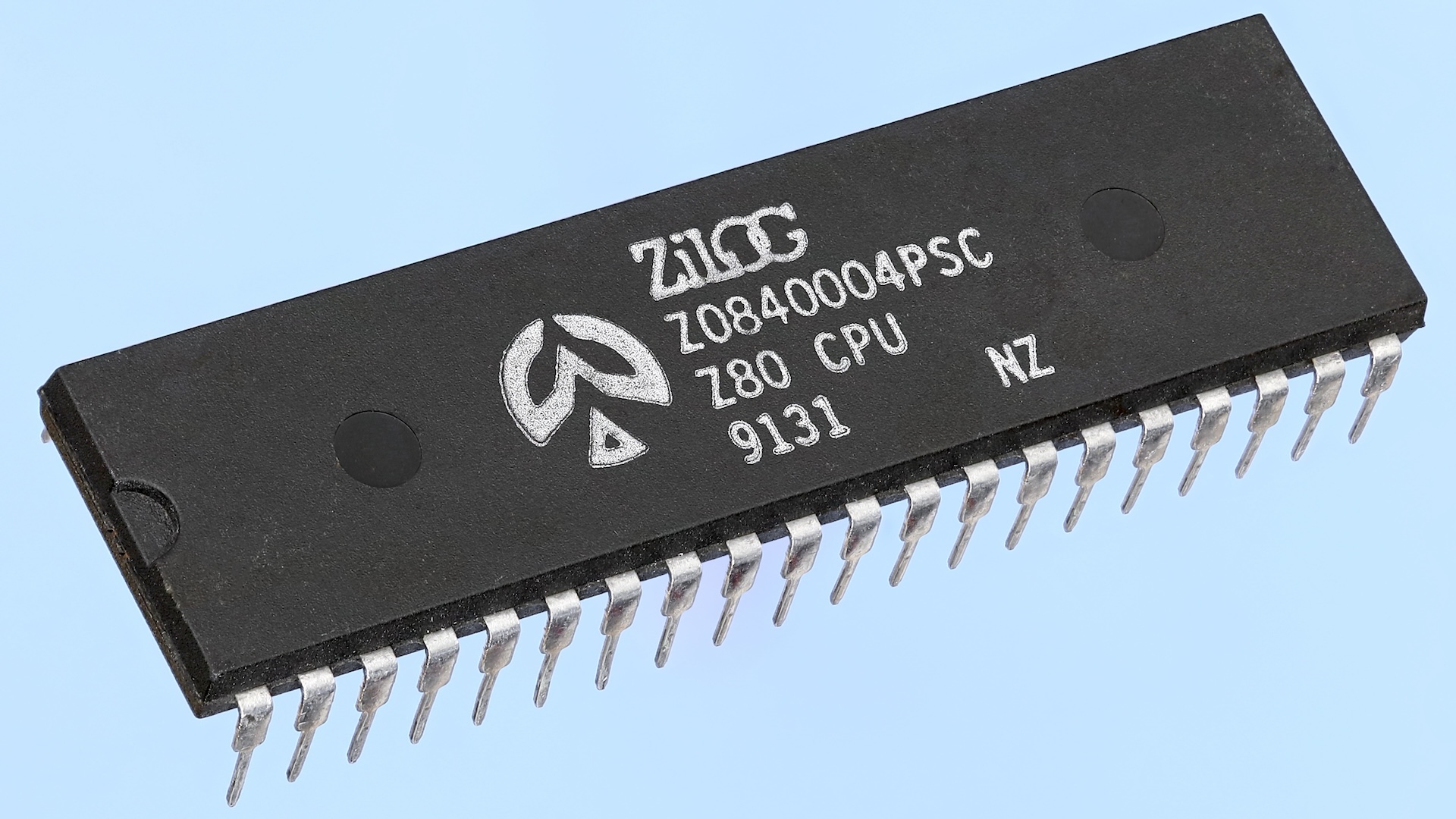
An open-source project is hoping to resurrect one of the most famous 8-bit CPUs in computing history. Zilog has announced the end-of-life for the original Z80 chip, but that might not be the end of the story. The first Free and Open Source (FOSS) clone of the Z80 chip is scheduled to start production in June 2024.
A Unity iOS developer, Renaldas Zioma, launched the GitHub project shortly after Zilog announced it will stop accepting orders for the Z80 after June 14, 2024. According to the project’s announcement, “It is a time for open-source and hardware preservation community to step in with a Free and Open Source Silicon (FOSS) replacement for Zilog Z80.”
The Z80 CPU first came out in 1976, and it pretty much made the personal computing boom happen in the 1980s. The chip was used in scientific calculators, the Sega Master System gaming console, and some of the first personal computers. For many of our UK readers, the most notable device to rely on the Z80 might be the Sinclair ZX Spectrum 8-bit home computer.
Support for the ZX Spectrum is a big reason for the physical Z80 clone’s existence. Its goal is to “develop a drop-in Z80 replacement in 8-bit home computers such as ZX Spectrum,” according to the project’s GitHub repository.
Ordinarily, producing a chip like the Z80 clone would be prohibitively expensive — simply because the quantity required for a production run would cost much more than a single developer could afford. For this reason, Zioma is using Tiny Tapeout 07 to fabricate the first batch of chips.
Tiny Tapeout is a multi-project wafer (MPW) service that allows multiple projects to share space on the same silicon wafer. This way, hobbyist makers and other small hardware developers can get their physical samples without a huge outlay of cash for a production run.
The Z80 clone will use Tiny Tapeout 07, which leverages Skywater’s 130nm node to produce venerable chips like this one. The first MPW run is set to begin production in June 2024, with delivery estimated for the end of December. After that, Zioma and any other contributors to the project will need to test the Z80 clones to identify any bugs in the samples.
Two further production runs will use Efabless’s ChipIgnite program, also with the Skywater 130nm node. In this run, the Z80 clone can be produced with its pins integrated. This will be important for offering the planned drop-in replacement CPUs for ZX Spectrum computers.
The additional production runs could be costly. According to The Register, ChipIgnite quotes a price of $9,750 for just 100 chips, or $97.50 each. If the project has the funding, it can get an additional 1,000 clones for just $20 each, or an additional $20,000.
What this means is that it will be many months — not until 2025 at the earliest — before anybody knows whether the Z80 physical clone is successful. Still, there's hope — as long as the project can secure funding to produce enough of the chips to turn a profit.







